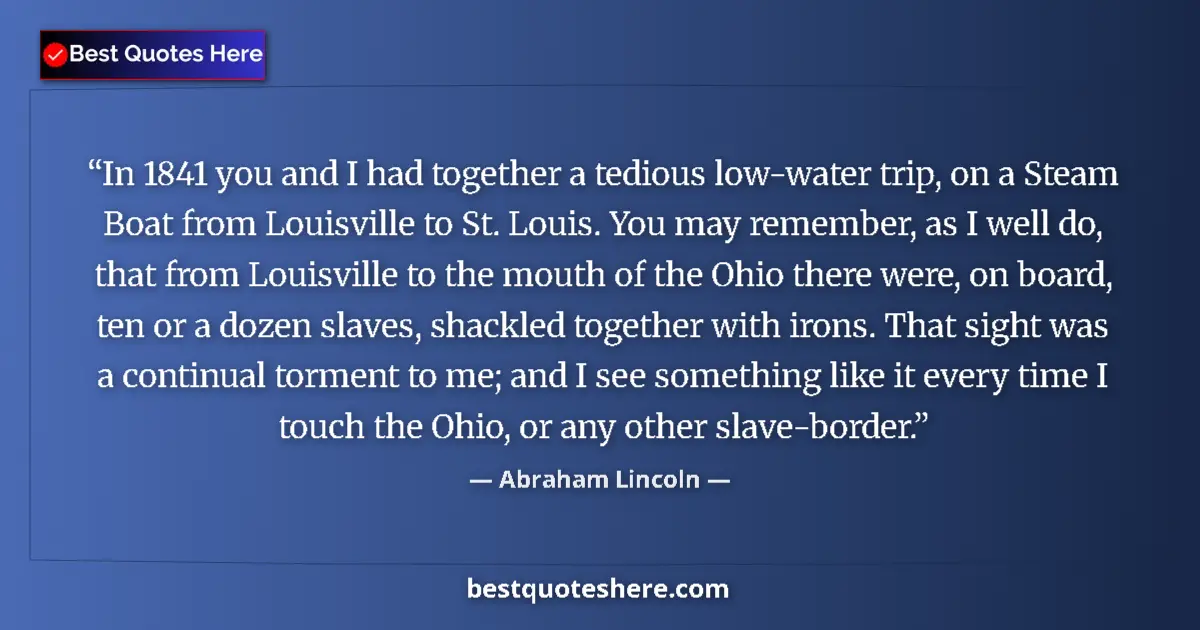"In 1841 you and I had together..." - Quote by Abraham Lincoln
In 1841 you and I had together a tedious low-water trip, on a Steam Boat from Louisville to St. Louis. You may remember, as I well do, that from Louisville to the mouth of the Ohio there were, on board, ten or a dozen slaves, shackled together with irons. That sight was a continual torment to me; and I see something like it every time I touch the Ohio, or any other slave-border.

More by Abraham Lincoln
“Great distance in either time or space has wonderful power to lull and render quiescent the human mind.”
“The only person who is a worse liar than a faith healer is his patient.”
“Doubtless you begin to understand how disagreeable it is to me to do a thing arbitrarily, when it is unsatisfactory to others associated with me.”
More on Slavery
“The people made worse off by slavery were those who were enslaved. Their descendants would have been worse off today if born in Africa instead of America. Put differently, the terrible fate of their ancestors benefitted them.”
“I hold it to be a paramount duty of us in the free states, due to the Union of the states, and perhaps to liberty itself (paradox though it may seem) to let the slavery of the other states alone; while, on the other hand, I hold it to be equally clear, that we should never knowingly lend ourselves directly or indirectly, to prevent that slavery from dying a natural death--to find new places for it to live in, when it can no longer exist in the old.”
“I never knew a man who wished to be himself a slave. Consider if you know any good thing, that no man desires for himself.”
More on Injustice
“Mahatma Gandhi and Martin Luther King are great examples of fantastic nonviolents who died violently. I can never work that out. We're pacifists, but I'm not sure what it means when you're such a pacifist that you get shot. I can never understand that.”
“O that a lady, of one man refused,Should of another therefore be abused!”
“Slave camps under the flag of freedom, massacres justified by philanthropy or the taste of the superhuman, cripple judgment. On the day when crime puts on the apparel of innocence, through a curious reversal peculiar to our age, it is innocence that is called on to justify itself. The purpose of this essay is to accept and study that strange challenge.”